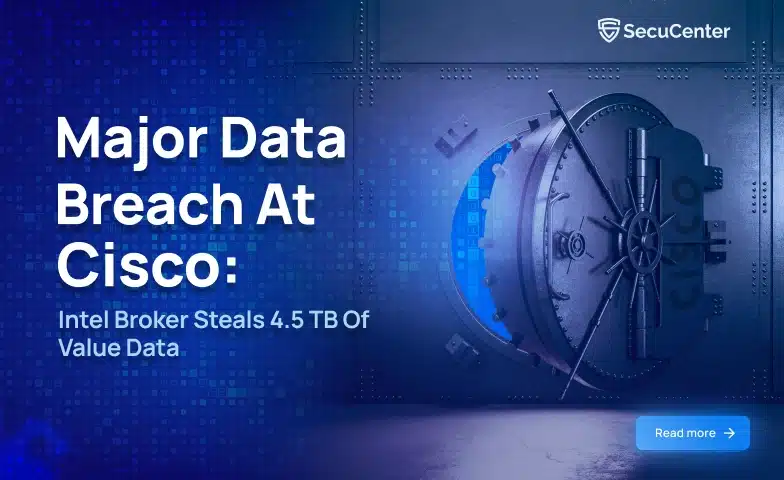Related Posts
What Is a White Label SOC and How Does It Work for MSPs?

In the rapidly evolving world of cybersecurity, Managed Service Providers (MSPs) are under growing pressure to deliver advanced security operations to their clients without the immense cost of building and managing a full-scale Security Operations Center (SOC). This is where White Label SOC services come in offering a cost-effective, scalable, and seamless way for MSPs to deliver top-tier cybersecurity under their own brand.
What is a White Label SOC ?
A White Label SOC (Security Operations Center) is a fully managed and operational cybersecurity infrastructure provided by a third-party vendor but branded and sold as the MSP’s own service. It allows MSPs to deliver 24/7 monitoring, threat detection, incident response, and SOC expertise without the need to invest in expensive technology, staffing, or infrastructure.
In simple terms, a White Label SOC enables MSPs to provide enterprise-grade cybersecurity defense capabilities without the heavy burden of building them from scratch. This partnership model combines the vendor’s technical excellence with the MSP’s client relationships, creating a win-win for both sides.
How a White Label SOC Works
A White Label SOC operates as an extension of the MSP’s business. Here’s how the process typically unfolds:
- Integration and Onboarding
The SOC provider integrates with the MSP’s existing systems, tools, and customer environments. This includes connecting security information and event management (SIEM) tools, endpoint detection and response (EDR) platforms, and threat intelligence feeds.
The onboarding phase ensures the SOC team has visibility across all assets and endpoints that require monitoring.
- 24/7 Monitoring and Detection
Once connected, the SOC analysts continuously monitor client environments for any signs of malicious activity. Using AI-driven analytics, behavioral monitoring, and automated threat detection tools, the SOC identifies potential threats in real time.
Alerts are filtered and prioritized based on severity to prevent alert fatigue, ensuring only actionable incidents reach the response stage.
- Incident Response and Remediation
When a security threat is detected, the White Label SOC team immediately investigates, validates, and responds to the incident. Depending on the MSP’s preference, the SOC can either take direct remediation actions or provide step-by-step guidance to the MSP’s team for resolution.
This ensures rapid response to minimize downtime and potential data breaches.
- Reporting and Continuous Improvement
The SOC generates comprehensive reports that detail threats detected, responses executed, and recommendations for improving the security posture. These reports can be branded with the MSP’s logo and identity, maintaining full client ownership.
Continuous improvement is driven through threat trend analysis, security posture assessments, and proactive threat hunting.
Also read: Top 10 Benefits of Partnering with a White Label SOC Provider
Why MSPs Need White Label SOC Services ?
In today’s cybersecurity landscape, MSPs face an uphill battle in keeping up with evolving threats, compliance requirements, and client expectations. Here are the top reasons why White Label SOC solutions have become indispensable for MSPs:
- Cost Efficiency
Building an in-house SOC can cost millions annually when factoring in infrastructure, software licenses, and skilled personnel. A White Label SOC eliminates these costs, allowing MSPs to deliver high-value services at a fraction of the investment.
- 24/7 Coverage
Cyber threats don’t sleep. White Label SOCs operate around the clock, providing continuous monitoring and response, ensuring that clients are protected even outside business hours.
- Access to Elite Cybersecurity Expertise
The global shortage of skilled cybersecurity professionals makes hiring and retaining talent a challenge. White Label SOC providers maintain a team of certified analysts, engineers, and incident responders, giving MSPs access to top-tier expertise on demand.
- Scalability and Flexibility
As MSPs grow, so does their client base. A White Label SOC offers scalable services, allowing MSPs to onboard new customers quickly without infrastructure or staffing bottlenecks.
- Brand Consistency
White Label SOCs are fully rebrandable, enabling MSPs to offer security services under their own name. This maintains customer trust and reinforces brand credibility while the backend operations remain outsourced.
Also read : The Cost to Build a 24/7 SOC vs. Having a White-Label SOC Support Partner
Key Components of a White Label Security Operations Center
A robust White Label SOC solution integrates several layers of advanced security tools and processes, including:
- SIEM (Security Information and Event Management) – Centralized log management and real-time correlation of security data.
- SOAR (Security Orchestration, Automation, and Response) – Automation of repetitive tasks for faster incident response.
- Threat Intelligence Feeds – Real-time data on emerging global threats.
- Endpoint Detection and Response (EDR) – Protection and monitoring of endpoints against sophisticated attacks.
- Vulnerability Management – Continuous assessment to identify and patch weaknesses in systems.
- Compliance Reporting – Helps MSPs ensure their clients meet regulatory standards such as GDPR, HIPAA, and ISO 27001.
The Benefits of Partnering with a White Label SOC Provider
Partnering with an established White Label SOC allows MSPs to focus on growth, sales, and client management while the SOC handles the technical backbone of cybersecurity.
Some of the standout benefits include:
- Rapid Go-to-Market – Launch security services in weeks, not months.
- Increased Profit Margins – Reduce capital expenditure while adding recurring revenue streams.
- Improved Client Retention – Offer enterprise-grade protection that builds customer loyalty.
- Enhanced Competitive Advantage – Differentiate your MSP business with 24/7 cybersecurity capabilities.
Choosing the Right White Label SOC Partner
Selecting the right SOC partner is critical to long-term success. MSPs should evaluate vendors based on the following criteria:
Proven Expertise – Look for SOCs with certified analysts (CISSP, CEH, CompTIA Security+).
Technology Stack – Ensure the provider uses leading platforms such as Splunk, SentinelOne, or CrowdStrike.
Transparent Reporting – Regular, branded reports that showcase the value delivered to clients.
Integration Capabilities – Seamless connection with existing MSP tools and workflows.
24/7 Support and Escalation – Global coverage and rapid response capabilities.
A trustworthy White Label SOC partner becomes an extension of the MSP’s brand, driving trust, efficiency, and long-term profitability.
Also read : The Benefits of White Label SOC Providers for MSSPs
White Label SOC: The Future of MSP Cybersecurity
As cyber threats grow in volume and sophistication, MSPs must adopt smarter and more scalable ways to secure their clients. White Label SOC solutions represent the future of managed cybersecurity — a model built on partnership, technology, and shared expertise.
By outsourcing SOC operations, MSPs can focus on what they do best: building relationships, delivering value, and growing their business — while their clients enjoy peace of mind with 24/7 security protection.
In conclusion, a White Label SOC empowers MSPs to deliver next-generation cybersecurity services without the cost, complexity, or risk of running an in-house operation. It’s not just a service—it’s a strategic growth enabler that helps MSPs scale faster, strengthen their brand, and stay ahead of evolving cyber threats.


